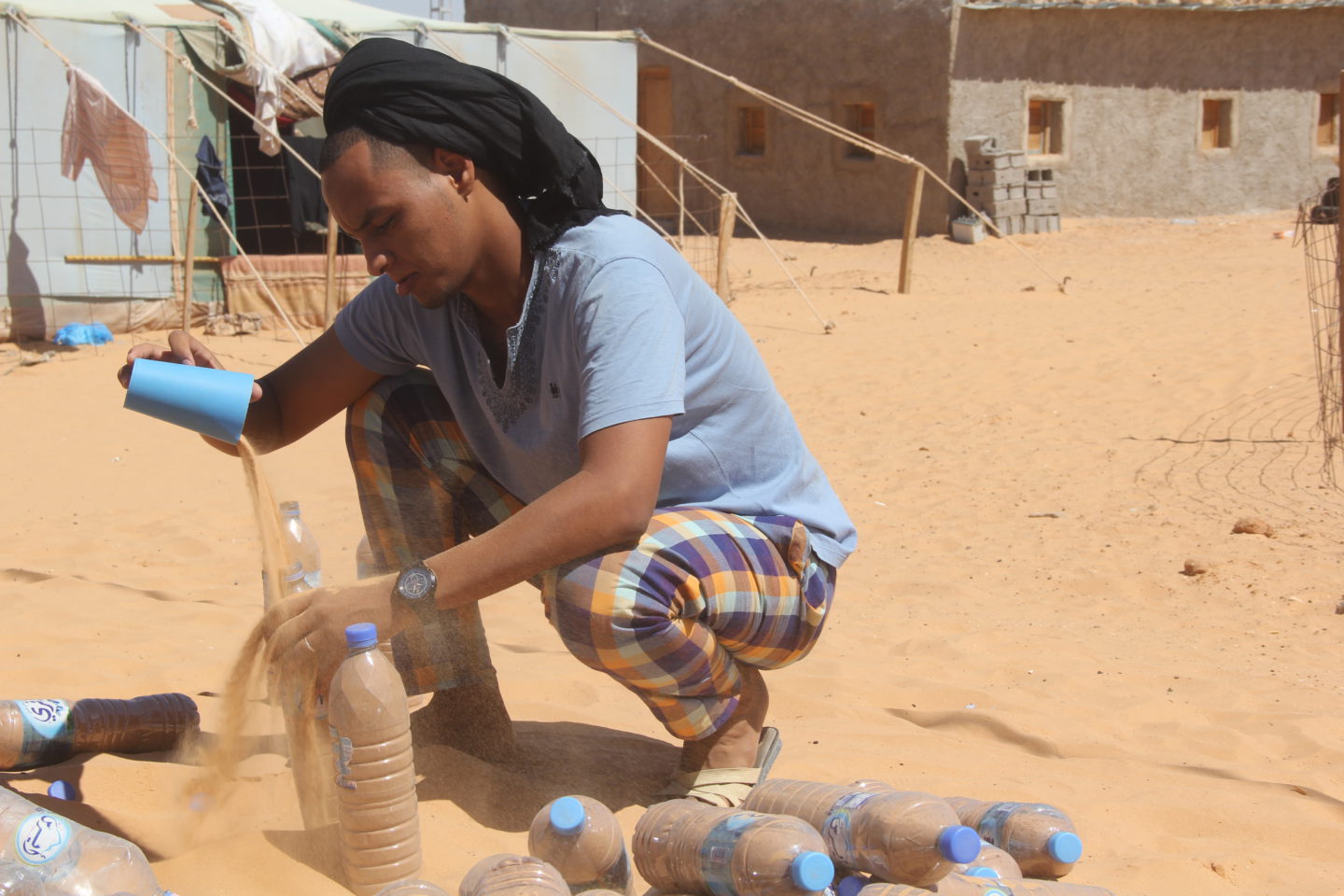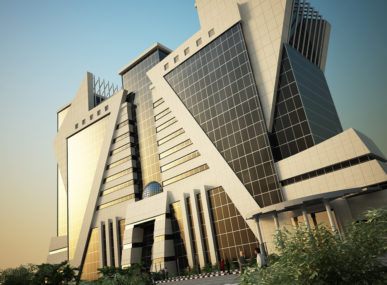For four decades, the refugee camps in the Western Sahara have been a place of exile for thousands of people displaced from their homes. This was where Tateh Lehbib, a young engineer born and raised in the camp, came up with the idea of building cheaper, stronger, and more environmentally friendly homes. To create his structures, he recycles materials readily available in the camp: plastic bottles, which he then fills with sand. He called his initiative Ecosahara.
“Life in the camp can be extremely tough, but I was determined to learn,” says Lehbib. “I was granted a scholarship to study sustainable development engineering at the University of Las Palmas de Gran Canaria. My research project focused on finding a convenient way to shelter the refugees I left back home.”
Lehbib has proven that necessity is the mother of all invention. His idea was born in 2015 when his grandmother lost her home in a flood. That same torrential downpour wiped out the homes and food supplies of an estimated 25,000 people at the camp. “I didn’t want my grandma to suffer from the heat anymore,” Lehbib says. “I wanted to offer a solid shelter for her in a region where the temperature can reach up to 50 degrees Celsius.”










